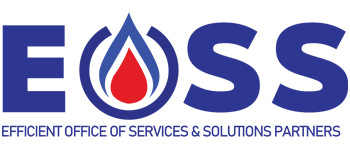
Because labor is so expensive, it’s important to see if you’re getting your money’s worth. If not, you may need to reevaluate the number of team members working or how you’re pricing your alcohol. Payworks performs mandatory source deductions – including federal and provincial taxes, and WCB premiums – and submits government remittances directly to the Canada Revenue Agency (CRA) on your company’s behalf. The program also issues Records of Employment and employee T4s, and can push the payroll information directly into your QBO file. Gusto can calculate and sync your team’s hours, PTO, and holidays with payroll automatically—even allow your employees to self-onboard. It is also compatible with Quickbooks for ease of use for everyone from your accountant to your payroll manager.
Expense Management and Receipt Tracking Applications
The operations of a brewery present several unique issues for the accountant, especially in regard to beer costs and taproom operations. But if you don’t correctly track payroll, it could be very consequential. That’s why it’s important to get help from an experienced professional who understands your business. Our team has experience working with several large payroll providers. We can assist with ensuring your payroll is set up correctly and help integrate your payroll transactions with your accounting system.
Direct Overhead
- Stringent record-keeping and easy access to vital documents like ingredient lists, beer destruction tallies, and product destination details are essential when you operate a brewery.
- We have three southeast Wisconsin locations to best serve your Milwaukee, Dane, Ozaukee, Washington, and Waukesha County based business.
- We’ve helped many Wisconsin businesses gain financial peace of mind and create a time and cost-effective approach to achieving their goals.
- These alternatives are meant to make sense to the brewery owner and guide intelligent growth.
- If you need help with your brewery bookkeeping, check out the resources in this post.
- Forexample, cloud-based accounting software typically automates processes byimporting transaction data on a real-time basis.
- It’s quite possible that a big increase in sales might have a minimal impact on profits, because the sales were through the least profitable distribution channel.
Without that granularity, you don’t know where to correct,” says Smith. Through tableside ordering and payments, you can enable your employees to spend more time with guests, accelerate service with tapside payments, and speed up checkout with portable technology optimized for the restaurant environment. What makes Xero unique is that it is compatible with Gusto’s payroll software.
Traditional Accounting
Let’s take a look at some essential bookkeeping tools you can use to streamline your brewery’s bookkeeping process. With competition stronger than ever, it’s essential that breweries have reliable accounting and bookkeeping systems in place to help manage costs, revenue and growth and, most importantly, streamline operations. These factors all contribute to a less efficient operation with potential losses due to missed opportunities resulting from an incomplete understanding of finances. Many food and beverage distributors make sales on credit, meaning their customers place orders, receive orders, and then pay for them after the distributor invoices them.
- We strive to be truly trusted advisors for our clients—not just their accountants—and we are dedicated to seeing them succeed.
- Information is easily updated and shared between team members withoutthe need to manually input reports or be in the same physical location.
- Learn how thousands of food and beverage businesses are painlessly automating invoices, payments and orders digitally.
- The results will be released in a two-part series on Craft Brewing Business.
- One way to greatly simplify your filings is to utilize inventory management software that integrates with brewery accounting softwares like QuickBooks and Xero.
- Plus, as we mentioned, you can easily integrate QuickBooks with your Ollie Ops brewery management software for the most comprehensive business solution for your brewery.
Best Accounting and Bookkeeping Services for Breweries
But, since it’s not that expensive, a lot of breweries just charge it to expense as incurred. The brewery probably buys T-shirts, hats, glassware, and so on from a supplier, and sells them on the premises. This is pretty much guaranteed profit, so it makes sense to set up a separate brewery accounting profit center to track it in the accounting system. “Chris and the Small Batch Standard team are an integral member of Wicked Barley. We consider our relationship a partnership. They have demonstrated invaluable knowledge in the brewery industry and has kept us from flying blind.”
Breweries and Distilleries

Brewery accounting is the practice of tracking and managing all financial activities related to a brewery. This includes recording transactions, creating reports, reconciling accounts, and other tasks necessary for proper management of finances. It is essential for any brewery owner or manager to set up their accounting system properly in order to keep track of their expenses, income and cash flow. A well-managed brewery should have an efficient accounting system that can easily handle day-to-day operations as well as long-term planning. Setting up your own accounting system will help ensure accuracy and reliability when it comes to making important decisions about your business.

Brewery Management Software
Reconciling accounts involves comparing the transactions recorded in your accounting system with the actual transactions in your bank and credit card statements. This helps to identify any discrepancies or errors in your accounting records, such as missing transactions, incorrect amounts, or duplicate entries. Using digital invoices makes this process much easier, as they are less prone to errors than physical invoices because the data is entered and processed electronically. There are a number of other advantages to keeping digital invoices; including efficiency, accessibility, environmental friendliness, and security. Any physical documents (invoices/receipts) should be kept organized with digital copies stored as backups – this helps maintain compliance with regulations or other guidelines set forth by local governments or organizations.
Why is bookkeeping so important for breweries, wineries and distilleries?
For years, the tax code has offered an incentive for employers to provide child care to their employees in the form of… Even if you don’t expect to retire anytime soon, the earlier you start… With campaign season gearing up, https://www.bookstime.com/ many individuals and businesses will be… The rules for deducting depreciation expenses on vehicles used for business purposes have been liberalized under… Independent brewers made up 13.1% of the U.S. beer market in 2022.
Popular methods include Activity Based Costing, Variable Costing, FIFO and LIFO. The method that most closely relates to the brewing process is Activity Based Costing (ABC). ABC examines the activities in the brewing process to establish rates.
Client Accounting Services

The correct accounting software can help you file taxes with confidence, keep tabs on your finances as you grow, and eliminate human mistakes through automations. With their extensive craft beverage industry knowledge, Small Batch Standard is making sure every feature of the QuickBooks software effortlessly flows with Ollie Ops’ customers’ books. Investing in a dependable piece of brewery management software should be an essential component of your business. Here is a list of the accounting and bookkeeping tools both we and Smith recommend using everywhere from your front-of-house point-of-sale system to your back-of-house brewery management platform. This refers to the money that a business is owed by its customers for goods or services that have been delivered but not yet paid for.
